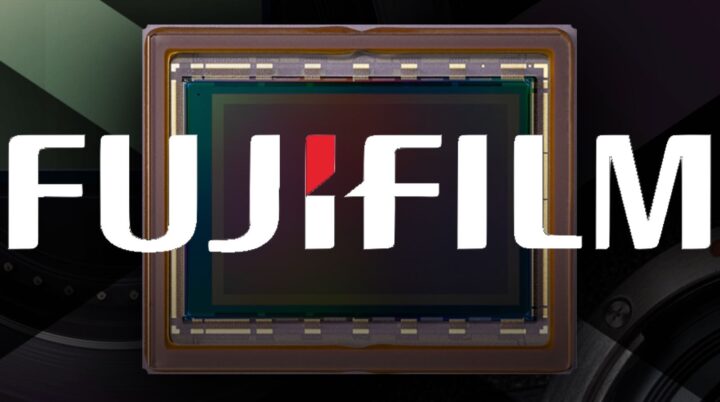Fujifilm to Build an Advanced Semiconductor Materials Manufacturing Facility in South Korea

There was a time, when Fujifilm made its own sensors. Mainly the 2/3 size sensor. But then they sold their business to Toshiba and Toshiba sold it to… Sony of course!
A Fujifilm manager said back in 2016 here, that the control over the sensor market is indeed a strategic advantage for Sony.
But Fujifilm has not given up everything.
In fact, they are still manufacturing semiconductor materials (including color filters) for example in Japan and in Taiwan as announced in 2016 here.
And apparently Fujifilm is doing that with great success, as currently Fujifilm boasts “over 80% global share in color filter materials for image sensors”.
Now the announcement that Fujifilm will expand this business further by building a new semiconductor materials manufacturing facility in South Korea.
I wish and hope that Fujifilm will continue to expand and eventually go back to make the entire sensor themselves.
Press Release
Fujifilm to Build an Advanced Semiconductor Materials Manufacturing Facility in South Korea
Strategically establishing local production of color filters for image sensors in South Korea
TOKYO, December 13, 2022 – FUJIFILM Corporation (President and CEO, Representative Director: Teiichi Goto) has announced a plan of a new advanced semiconductor materials manufacturing facility in South Korea to further expand the electronic materials business.
In the latest move, FUJIFILM Electronic Materials Korea Co., Ltd. (Head office in Cheonan-si, Chungcheongnam-do; President: Masashi Enokido) started to build a new manufacturing facility for producing color filter materials for image sensors in PyeongTaek, South Korea. The facility will be operational in spring 2024 to commence local production of color filter materials for image sensors.
The new facility in South Korea will become the Company’s second production site*1 for semiconductor materials in the country. The new facility will feature cutting-edge manufacturing capabilities and state-of-the-art evaluation equipment to enable the production of high-quality and high-performance products.
With its close proximity to major technology manufacturers, the facility will cater to the growing demand for locally-sourced production of color filters for image sensors in South Korea. Image sensors are a type of semiconductor that converts light into electric signals for visual presentation, and are used in digital cameras, smartphones and other electronic devices. With the recent expansion of image sensor applications in cars with autonomous driving features, and security devices, the image sensor market is expected to grow at the rate of 7% per annum*2.
In Japan and Taiwan, Fujifilm produces photosensitive color materials required for manufacturing color filters used in image sensors, and supplies them globally. Currently, the company boasts over 80% global share in color filter materials for image sensors*3. Additionally, Fujifilm’s expertise in advanced functional molecular technology and nano-dispersion technology will enable the market introduction of products targeting a broader wavelength range. At present, this concept is applied to product deployment under the Wave Control Mosaic (WCM)*4 brand for greater business expansion.
The move will establish a production structure with three sites in Japan, Taiwan and South Korea. This allows Fujifilm to make stable production and distribution of color filter materials for image sensors at a high level of quality, and fulfill its supply responsibility as the market leader. The sales of WCM will be expanded by accelerating market introduction of new products that cater to customer needs.
Fujifilm will promote growth strategies including active capital investments in order to expand its electronic materials business and contribute to further development of the semiconductor industry. The Company has a broad product portfolio including photoresist*5, photolithography-related materials, CMP slurries, post CMP cleaners*6, polyimide*7, and WCM, as well a global manufacturing network to enable stable supply, advanced R&D capability and strong customer relations.
*1 The existing plant in Cheonan and the new plant in PyeongTaek. The existing plant produces CMP slurries (abrasive material for evenly levelling semiconductor surface that features a mixture of insulation film and wires of different hardness) and developing solution. CMP stands for Chemical Mechanical Polishing.
*2 According to “CCD & CMOS market’s marketing analysis for H1 2022” by the market research company, Techno System Research
*3 According to Fujifilm data as of December 13, 2022
*4 General terms referring to a group of functional materials that control electromagnetic waves (light) in a broad range of wavelengths; This includes photosensitive color materials for manufacturing color filters for image sensors such as CMOS sensors, used in digital cameras and smartphones.
*5 Material coated on the wafer substrate when drawing circuit patterns in the pre-process of semiconductor manufacturing
*6 Cleaner used after polishing with CMP slurry, removing particles, minute metal particulates and organic residues while protecting the metal surface
*7 A material with strong heat resistance and insulation properties, used for forming semiconductors’ protective films and rewiring layer
Overview of the new plant
- Location: PyeongTaek City, Gyeonggi Province, Republic of Korea (Oseong Industrial Complex)
- Production item: Color filter materials for image sensors
- Construction commencement: December 13, 2022
- Operation commencement: Spring of 2024

